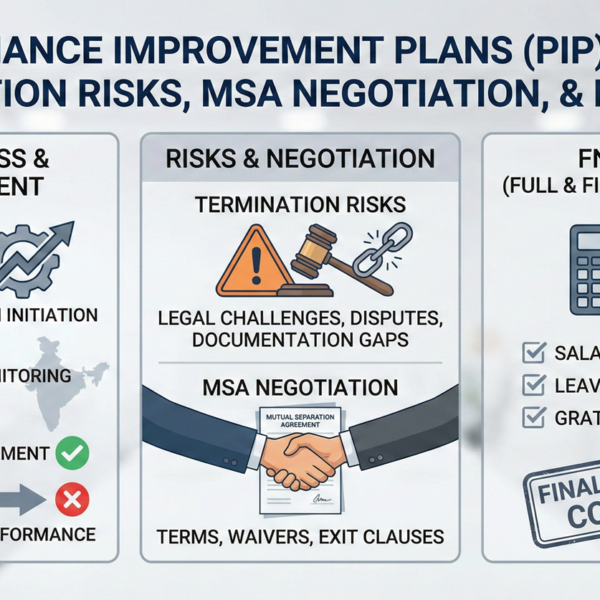Navigating property ownership in India as an Overseas Citizen of India (OCI) is complex. This comprehensive 2025 guide clarifies your OCI property rights, covering the complete lifecycle from acquiring to disposing of assets.
We explore the legal framework (FEMA vs. MHA notifications), the rules for buying property, and the critical “inheritance exception” that allows OCIs to own agricultural land. This guide also details selling/gifting rules, home loans, tax liabilities (capital gains, TDS, LDCs), fund repatriation (USD 1 Million Scheme), and the correct use of a Power of Attorney (PoA).
The Complete Guide to OCI Property Rights in India
Your 2025 guide to buying, inheriting, selling, and taxing property as an Overseas Citizen of India.
Updated: October 2025Section 1: The Legal Foundation of OCI Property Rights
Understanding your property rights starts with your legal status. An Overseas Citizen of India (OCI) cardholder is a “person resident outside India” registered under the Citizenship Act, 1955. This is not dual citizenship. India’s Constitution does not allow holding Indian and foreign citizenship at the same time. The OCI card is a special legal status that grants a set of rights through government notifications.
The Ministry of Home Affairs (MHA) Notification from March 4, 2021, is the most important document. It supersedes all previous notifications from 2005, 2007, and 2009. This 2021 notification defines an OCI’s current economic, financial, and educational rights.
OCI vs. Non-Resident Indian (NRI)
The 2021 MHA notification grants OCI cardholders “parity with Non-Resident Indians (NRIs)” for economic, financial, and educational matters. For property, this means OCIs are generally treated just like NRIs. This applies to the “purchase or sale of immovable properties.”
This parity is not total. A key exception exists for “acquisition of agricultural or plantation properties.”
Governing Laws: FEMA vs. Citizenship Act
It is important to know which law governs which right. Your status comes from two main sources:
- The Citizenship Act, 1955: This law, managed by the Ministry of Home Affairs (MHA), defines who an OCI is and grants the OCI card. It grants rights like the lifelong visa, but refers financial rights to other laws.
- The Foreign Exchange Management Act, 1999 (FEMA): This law, managed by the Reserve Bank of India (RBI) and Ministry of Finance, governs all foreign exchange transactions. This includes the purchase and sale of property by non-residents. Your property rights (buying, selling, repatriating) are defined by FEMA regulations.
Comparative Rights at a Glance
OCI Cardholder
- Buy Residential/Commercial: Yes
- Buy Agricultural Land: No
- Inherit Any Property: Yes
Non-Resident Indian (NRI)
- Buy Residential/Commercial: Yes
- Buy Agricultural Land: No
- Inherit Any Property: Yes
Foreign National
- Buy Residential/Commercial: No
- Buy Agricultural Land: No
- Inherit Any Property: Yes (with RBI approval)
Table 1: Comparative Property Rights Matrix
| Right / Action | Non-Resident Indian (NRI) (Indian Citizen) |
Overseas Citizen of India (OCI) (Foreign Citizen, Indian Origin) |
Foreign National (Non-Indian Origin) |
|---|---|---|---|
| Purchase Residential / Commercial Property? | Yes (General Permission) | Yes (General Permission – Parity with NRI) | No (Prohibited) |
| Purchase Agricultural Land / Farmhouse? | No (Prohibited) | No (Prohibited) | No (Prohibited) |
| Inherit Residential / Commercial Property? | Yes | Yes | Yes (But requires prior RBI approval) |
| Inherit Agricultural Land / Farmhouse? | Yes | Yes | Yes (But requires prior RBI approval) |
| Requires RBI Approval for General Purchase? | No (General Permission) | No (General Permission) | N/A (Purchase is prohibited) |
Section 2: Acquiring Property (Purchase and Gift)
General Permission to Purchase
OCI cardholders, like NRIs, have “general permission” from the Reserve Bank of India (RBI). This means you do not need any prior approval from the RBI to purchase residential or commercial property in India. There is also no limit on the number of residential or commercial properties you can buy.
Payment must be made through proper banking channels. Permitted sources are:
- Inward remittance from abroad.
- Funds held in your NRE (Non-Resident External) account.
- Funds held in your FCNR(B) (Foreign Currency Non-Resident) account.
- Funds held in your NRO (Non-Resident Ordinary) account.
You cannot pay using traveller’s cheques or foreign currency notes.
The ‘Three Prohibitions’
This is the biggest restriction. Both FEMA and the MHA 2021 notification prohibit OCIs from purchasing three specific property types:
1. Agricultural Land
(e.g., land for farming, crops)
2. Farmhouse
(House situated on agricultural land)
3. Plantation Property
(e.g., for growing coffee, tea, rubber)
A hidden legal risk exists in the definition of “farmhouse.” No regulation clearly defines it.
This right to receive a gift does not extend to the three prohibited categories. An OCI cannot receive agricultural land, a farmhouse, or plantation property as a gift.
Obtaining a Home Loan in India
OCIs are eligible to get home loans in Indian Rupees (INR) from authorized banks and housing finance institutions in India. The rules are specific:
Key Rules for OCI Home Loans
- Loan Currency: The loan must be in Indian Rupees (INR) only. You cannot get a foreign currency loan in India.
- Permitted Use: The loan can only be used to purchase, construct, repair, or renovate residential or commercial property. It cannot be used to buy agricultural land.
- Repayment: Loan repayments (EMIs) can be made from your NRE or NRO account, or through inward remittances.
- Loan-to-Value (LTV): The LTV ratio is typically set by the RBI, often around 75-80%. This means your down payment must come from your own funds.
When You Do Need RBI Approval
The “general permission” for OCIs has exceptions. You must seek specific, prior approval from the Reserve Bank of India in these situations:
- Purchase from a Foreign Citizen: If you (an OCI) want to buy property from any person who is not a person resident in India (e.g., from another OCI, an NRI, or a foreign national who inherited it).
- Transfer of Agricultural Land: Any transfer of agricultural land, a farmhouse, or plantation property requires RBI approval, except for the specific cases of inheritance or sale to a resident Indian citizen.
- Repatriation of Sec 6(5) Property: As mentioned in Section 5, if you want to repatriate the sale proceeds of property you bought while you were a resident Indian, you need RBI approval.
- Lease Over 5 Years: If you want to lease any property for a period exceeding five years.
The “Grandfather” Clause: FEMA Section 6(5)
Section 6(5) of FEMA, 1999, is a “grandfather” clause. It states that a person resident outside India (including an OCI) can legally hold, own, or transfer property in India if they acquired it when they were a person resident in India.
This means an Indian citizen who legally bought agricultural land while living in India can continue to legally hold that property even after they move abroad and become an OCI. This creates a one-time opportunity for Indian residents planning to emigrate. They can legally purchase agricultural land before their residential status changes.
Section 3: The Inheritance Exception
Acquisition by inheritance follows a different and more permissive framework. An OCI cardholder has the full right to acquire any immovable property in India by way of inheritance. This right is not limited by property type.
An OCI can inherit from:
- A person resident in India (e.g., parents).
- A person resident outside India (e.g., another NRI or OCI), provided the deceased had acquired the property legally under the laws in force at that time.
The Agricultural Land Anomaly
This is the most important exception in OCI property law. While an OCI is banned from purchasing agricultural land, they are explicitly permitted to inherit it.
The Inheritance Anomaly: Agricultural Land
PURCHASE
PROHIBITEDFEMA rules block commercial transactions for agricultural land.
INHERIT
PERMITTEDThe law respects the natural line of succession and does not interfere.
The law does not interfere with natural succession. The right of an heir is respected, even when it results in an OCI owning a restricted asset. This means an OCI can legally hold a city apartment and a rural farm, a portfolio they could never have purchased themselves.
Section 4: Disposing of Property (Sale and Gift)
An OCI’s rights to sell, gift, or transfer property are governed by a distinct set of rules, especially for inherited agricultural land.
Selling Residential and Commercial Property
An OCI owner of residential or commercial property can sell it to:
- A person resident in India.
- A Non-Resident Indian (NRI).
- Another OCI cardholder.
Disposing of Inherited Agricultural Land
This is a “locked asset” rule. An OCI who has legally inherited agricultural land, a farmhouse, or plantation property can sell it.
However, the law strictly limits to whom they can sell it. Such property can only be sold to a person resident in India who is also a citizen of India.
An OCI cannot sell inherited agricultural land to another OCI or an NRI. This breaks the chain of non-resident succession for agricultural land. The policy ensures the land eventually returns to resident Indian ownership, with the OCI heir receiving the cash value.
Table 2: OCI Property Rights Lifecycle
| Action | Property Type 1: Residential / Commercial | Property Type 2: Agricultural / Farmhouse |
|---|---|---|
| Can OCI Purchase? | YES (General Permission) | NO (Strictly prohibited) |
| Can OCI Inherit? | YES (From resident or non-resident) | YES (This is the key exception) |
| Can OCI Receive as Gift? | YES (From Resident, NRI, or other OCI) | NO (Prohibited) |
| To Whom Can OCI Sell? |
|
|
| To Whom Can OCI Gift? |
|
|
Section 5: Using a Power of Attorney (PoA)
For an OCI living abroad, managing property transactions in India is a significant logistical challenge. A Power of Attorney (PoA) is an essential legal tool to appoint a trusted person in India to act on your behalf.
General vs. Special PoA
There are two main types of PoA. For property matters, one is far safer than the other.
- General Power of Attorney (GPoA): Grants broad powers to your representative to manage all your affairs (e.g., bank accounts, property, legal cases). This is very risky.
- Special Power of Attorney (SPoA): Grants specific, limited powers for a single purpose. This is the recommended choice. For example, an SPoA can authorize your representative “only to execute the final Sale Deed for property X” or “only to manage the rent for property Y.”
How to Execute a PoA from Abroad
This is a critical process that must be followed precisely for the document to be valid in India.
Draft the PoA
Have an Indian lawyer draft a Special PoA with clear, unambiguous terms. Do not use a generic template.
Apostille or Attestation
Sign the PoA in your country of residence before an Indian Consular officer (at an Indian Embassy/Consulate) OR a local Notary Public. If notarized, it must then be Apostilled (if your country is part of the Hague Convention).
Stamp in India
Send the attested/apostilled PoA to India. Your representative must present it to the Collector of Stamps (or equivalent) within 3 months of its arrival in India to be “adjudicated” and have the proper stamp duty paid. Without this, the PoA is invalid.
Always choose a highly trustworthy person as your PoA holder. A PoA for property sale must be registered at the Sub-Registrar’s Office (SRO) to be valid.
Section 6: Repatriating Funds
Repatriating sale proceeds (transferring money from India to a foreign country) is a complex process. An OCI’s ability to do this depends on the bank accounts used.
- NRE (Non-Resident External) Account: For funds remitted to India. Principal and interest are fully repatriable (can be sent abroad without limit).
- NRO (Non-Resident Ordinary) Account: For income earned in India (e.g., rent, sale proceeds). Funds are not repatriable by default.
The USD 1 Million Scheme
FEMA provides a facility known as the “USD 1 Million Scheme.” This allows an OCI to remit up to USD 1,000,000 (one million US dollars) per financial year (April 1 – March 31) from their NRO account balances. This cap includes all remittances from the NRO account, such as proceeds from property sales, stock sales, and inherited assets. Any amount over this limit requires specific RBI approval.
Repatriation Rules by Acquisition Method
The exact rules depend on how the property was acquired.
- Property Bought with Foreign Exchange / NRE Funds: An OCI can repatriate the sale proceeds up to the original principal amount paid in foreign exchange. This is limited to two residential properties. The profit (capital gains) must go to the NRO account and can be repatriated using the USD 1 Million Scheme.
- Property Bought with Rupee Funds / NRO Funds: The entire sale proceeds (principal and profit) must be credited to the NRO account. Repatriation is only possible through the USD 1 Million Scheme.
- Property Acquired by Inheritance or Gift: The entire sale proceeds must be credited to the NRO account. The funds can then be repatriated using the USD 1 Million Scheme.
- Property Held under FEMA Sec 6(5) (Acquired as Resident): This is a “repatriation trap.” While you can hold the property, you cannot repatriate the sale proceeds without prior approval from the RBI. The USD 1 Million Scheme does not apply here.
Mandatory Forms: 15CA and 15CB
To repatriate any funds from an NRO account, you must complete a two-step process:
- Form 15CB: You must hire a Chartered Accountant (CA) in India to verify that all taxes (e.g., capital gains tax) have been paid. The CA issues Form 15CB, a certificate confirming tax compliance.
- Form 15CA: Based on the CA’s certificate, you file Form 15CA online with the Income Tax Department. This is your declaration that the remittance is tax-compliant.
Only after you present both documents to your bank will it process the international wire transfer.
Chart: Visualizing Repatriation Scenarios
This chart illustrates where funds go when you sell property, based on how you acquired it. (Example: 2 Crore Sale Price, 1.2 Crore Principal, 80 Lakh Profit).
Table 3: Repatriation Rules Summary
| Acquisition Scenario | Where do Sale Proceeds Go? | Repatriation Rule | Requires Prior RBI Approval? |
|---|---|---|---|
| 1. Bought with NRE / Foreign Funds | Principal to NRE (optional); Profit to NRO |
Principal is repatriable (max 2 properties). Profit via USD 1M Scheme. |
No (General Permission) |
| 2. Bought with NRO / Rupee Funds | Entire amount to NRO | Via USD 1M Scheme only. | No (General Permission up to USD 1M) |
| 3. Inherited or Gifted Property | Entire amount to NRO | Via USD 1M Scheme. | No (General Permission up to USD 1M) |
| 4. Property Held under FEMA Sec 6(5) | Entire amount to NRO | Cannot be repatriated under general permission. | YES (Mandatory RBI approval required) |
Section 7: Comprehensive Tax Liabilities
Owning property in India creates taxable events at purchase, during ownership (if rented), and at sale.
Tax on Rental Income
Rental income is taxable in India. It must be deposited into an NRO account. Your tenant is required under Section 195 to deduct TDS (Tax Deducted at Source) at 31.2% from the rent before paying you. This is mandatory regardless of the rent amount.
Your actual tax is often lower, calculated on your net income (after a 30% standard deduction, municipal taxes, and loan interest) using standard tax slabs. You must file an Income Tax Return (ITR) in India to claim these deductions and get a refund for the excess TDS.
Tax on Sale: Capital Gains
Profit from a sale is a “capital gain” and is taxable in India. For property, the holding period is 24 months.
- Short-Term (Held 24 months or less): Profit is added to your income and taxed at your slab rate.
- Long-Term (Held over 24 months): Profit is taxed at a flat 20%, with the benefit of indexation (which adjusts the purchase price for inflation, reducing the taxable profit).
The Tax vs. Repatriation Asymmetry
When an OCI sells property, the buyer must deduct TDS under Section 195. This TDS is calculated on the entire sale price, not just the profit. This creates a cash-flow problem.
Example: You sell a property for INR 2 Crore. Your actual calculated long-term capital gains tax (after indexation) is INR 24 Lakh. However, the buyer must deduct TDS at 20.8% on the full INR 2 Crore sale price, which is INR 41.6 Lakh. The buyer withholds INR 41.6 Lakh, even though your tax is only INR 24 Lakh. You must then file an ITR to claim the INR 17.6 Lakh refund, which takes time.
Interactive Chart: TDS vs. Actual Tax
This chart shows the cash-flow problem from the example (INR 2 Crore sale). The TDS withheld is far greater than the actual tax owed.
The Solution: Lower Tax Deduction Certificate (LDC)
To prevent this, the OCI (as the seller) can apply to their Income Tax Officer for a Lower TaxDeduction Certificate (LDC) before the sale. This application shows the calculation of the actual capital gain. The officer then issues the LDC, which instructs the buyer to deduct TDS at a lower, correct rate (e.g., 20.8% of only the INR 1.2 Crore profit, not the INR 2 Crore sale price).
Capital Gains Tax Estimator
Estimate your tax liability from a property sale. This is for illustration only and is not tax advice.
Table 4: Tax & Financial Workflow for OCI Owners
| Stage | Key Action | Responsible Party | Governing Law | Key Forms |
|---|---|---|---|---|
| 1. Holding & Renting | Deduct TDS on Rent (31.2%) | Tenant | IT Act, Sec 195 | Form 27Q |
| 2. Preparing for Sale | Apply for LDC | OCI-Seller | IT Act, Sec 195/197 | Lower Tax Deduction (LDC) |
| 3. At Time of Sale | Deduct TDS on Sale Price | Buyer | IT Act, Sec 195 | (LDC, if obtained) |
| 4. Post-Sale (Tax) | File ITR, Claim Refund | OCI-Seller | IT Act | ITR |
| 5. Post-Sale (Repatriation) | Verify Tax Payment | Chartered Accountant | FEMA / IT Act | Form 15CB |
| Declare Remittance | OCI-Seller | IT Act | Form 15CA |
Eligibility: An OCI can apply for an Aadhaar card if they have been physically present in India for 182 days or more in the 12 months immediately preceding the date of application. You cannot apply for it from abroad.
Section 8: Legal Precedents (FERA vs. FEMA)
In 2021, a Supreme Court judgment (Asha John Divianathan v. Vikram Malhotra) caused panic. It held that a property transfer by a foreign citizen without RBI permission was void. Many incorrectly reported that OCIs and NRIs now needed RBI approval for all transactions.
This panic was misplaced. The ruling was based on the Foreign Exchange Regulation Act, 1973 (FERA). FERA was a strict law that was fully repealed and replaced by the government in 2000. The transaction in the case took place in the 1970s and 1980s.
The 2022 RBI Clarification
The RBI issued a formal clarification in 2022. It stated:
- The Asha John judgment was based on the repealed FERA, 1973.
- All current property transactions are governed only by the Foreign Exchange Management Act, 1999 (FEMA).
- Under the current FEMA regulations, NRIs and OCIs do not require prior approval of the RBI for acquiring and transferring property, except for agricultural land, farmhouses, and plantation properties.
Section 9: Practical Due Diligence Checklist
Legal status as an OCI is only half the battle. The property itself must be legally sound. Before purchasing, you (or your PoA holder) must conduct thorough due diligence. This is especially true for non-residents who cannot easily inspect records.
Pre-Purchase Verification List
-
Title Deed & Chain of Ownership
Verify the “Mother Deed” (the earliest document) and all subsequent sale deeds (the “chain”) to ensure the seller has a clear and marketable title.
-
Encumbrance Certificate (EC)
Obtain an EC for the last 15-30 years from the Sub-Registrar’s Office. This document shows if there are any existing mortgages, liens, or legal claims against the property.
-
Land Use Classification (Critical)
Verify the land classification in the official “Master Plan” and government revenue records (e.g., Patta, Khata). Ensure the residential/commercial property is not on land designated as “agricultural.”
-
RERA Registration (For new projects)
If buying from a developer, ensure the project is registered with the Real Estate (Regulation and Development) Act (RERA). Check the RERA website for project details and any complaints.
-
Property Tax Receipts
Ask the seller for all original property tax receipts and utility bills. This proves that all dues are cleared and confirms the owner’s name.
Section 10: PAN and Aadhaar for OCIs
To participate in any financial transaction in India, two documents are essential. One is mandatory, the other is highly practical.
PAN Card (Mandatory)
A Permanent Account Number (PAN) is a mandatory 10-digit alphanumeric code from the Income Tax Department. An OCI must obtain a PAN card for:
- Any property transaction valued over INR 10 Lakh.
- Opening any bank account (NRE, NRO).
- Filing an Income Tax Return (ITR) in India (which is required if you have rental income or capital gains).
- Investing in stocks or mutual funds.
OCIs can apply for a PAN card online using Form 49AA, providing copies of their OCI card, foreign passport, and an address (which can be their foreign address).
Aadhaar Card (Highly Recommended)
Aadhaar is a 12-digit unique identification number. While not technically mandatory for OCIs to own property, it is highly recommended for practical reasons. It simplifies almost every process, such as e-KYC for bank accounts, mutual funds, and getting an Indian mobile number.
Eligibility: An OCI can apply for an Aadhaar card if they have been physically present in India for 182 days or more in the 12 months immediately preceding the date of application. You cannot apply for it from abroad.
Section 11: State-Specific Land Laws
The FEMA and RBI rules are central (federal) laws governing foreign exchange and your status as an OCI. However, “land” itself is a state subject in the Indian Constitution. This means each state has its own specific laws that can add another layer of regulation.
The rules in this guide are the first hurdle. You must also clear the second hurdle of local state laws. Always hire a local lawyer.
Examples of State-Level Rules
- Tenancy Acts: States like Maharashtra and Karnataka have strong tenancy laws. If you inherit property with existing tenants, evicting them may be difficult and subject to local rent control or tenancy acts.
- Land Reforms Acts: Many states (e.g., Karnataka, Kerala, West Bengal) have Land Reforms Acts that place a “ceiling” on how much agricultural land one person can own. They may also have rules restricting who can buy agricultural land (e.g., only a pre-existing “agriculturist”).
- Land Records Systems: Each state has a different system for land records. For example, in Tamil Nadu, you must verify the “Patta” (title deed) and “Chitta” (land classification). In Karnataka, you check the “Khata.”
The general FEMA rule (OCIs cannot buy agricultural land) is simple. But a state law might add, “and even an Indian citizen cannot buy agricultural land unless they are an agriculturist.” These local rules must be verified.
Section 12: Rights for Other Assets (In-Depth)
An OCI’s financial rights extend well beyond real estate. You have parity with NRIs for most financial investments.
Investing in the Stock Market
OCIs can invest in Indian stocks through two main routes:
- Portfolio Investment Scheme (PIS): This is the formal route for investing on a repatriable basis. It requires RBI approval and a PIS-specific NRE account. Investments are capped: an OCI cannot hold more than 5% of a company’s paid-up capital, and all OCI/NRI holding combined cannot exceed 10%.
- Non-PIS Route: An OCI can invest in Indian companies through IPOs (Initial Public Offerings) on a repatriable or non-repatriable basis. You can also purchase shares on a non-repatriable basis using NRO funds, which has fewer restrictions.
Investing in Mutual Funds
This is a popular route for OCIs. The rules are straightforward:
- Repatriable Basis: Use your NRE or FCNR(B) account. The principal and gains are fully repatriable.
- Non-Repatriable Basis: Use your NRO account. The principal and gains are credited to the NRO account and can be repatriated using the USD 1 Million Scheme.
Practical Hurdle: US and Canada Residents
Due to strict FATCA (USA) and CRS (Canada) compliance and reporting rules, most Indian mutual fund houses (Asset Management Companies) do not accept investments from OCIs or NRIs who are residents of the USA or Canada. This is a business decision, not a legal prohibition by the RBI.
Investing in a Business
An OCI can invest in an Indian company or Limited Liability Partnership (LLP) under the Foreign Direct Investment (FDI) route, on par with other foreign investors. Investment is allowed in most sectors via the “automatic route” (no government approval needed). You can also act as a Director in an Indian company.
Prohibited sectors for FDI include real estate business (buying and selling land), lottery, gambling, and atomic energy.
OCI Property Scenario Tool
Select your scenario for tailored guidance. This tool provides general rules based on FEMA. Land is a state subject, so you must verify local laws.
Frequently Asked Questions
Q1: Is an OCI card the same as dual citizenship?
No. India’s Constitution does not permit dual citizenship. An OCI card is a special legal status granted to a foreign citizen of Indian origin. It provides a lifelong visa and gives you parity with NRIs for most economic and financial matters, but you are still a citizen of your foreign country.
Q2: What’s the difference between NRE and NRO accounts?
These are the two main bank accounts for NRIs/OCIs:
NRE (Non-Resident External): Use this for your foreign income remitted to India. You can use it to buy property. The principal amount is freely repatriable. Interest is tax-free in India.
NRO (Non-Resident Ordinary): Use this for your Indian income (e.g., rent, sale proceeds from inherited property, capital gains). Funds are not freely repatriable; you must use the USD 1 Million Scheme (with Forms 15CA/CB) to send money abroad. Interest is taxable in India.
Q3: What is a “Lower Tax Deduction Certificate” (LDC) and why do I need it?
When an OCI sells property, the buyer must legally deduct TDS (Tax) on the entire sale price (e.g., 20.8% of INR 2 Crore), not just the profit. This amount is often much higher than your actual capital gains tax.
An LDC is a certificate you get from the Income Tax Officer before the sale. It shows your real tax liability (e.g., 20.8% of your INR 50 Lakh profit). You give this certificate to the buyer, who is then legally allowed to deduct the lower, correct amount. This saves you from a massive overpayment and the long wait for a tax refund.
Q4: How do I execute a Power of Attorney (PoA) from abroad?
You must sign the PoA (preferably a Special PoA) in your country of residence in front of an official. You have two options:
- Attestation: Sign it at the Indian Embassy or Consulate.
- Apostille: Sign it before a local Notary Public, and then get it Apostilled (if your country is part of the Hague Apostille Convention).
After this, you must send the original document to India. Your representative must get it “adjudicated” and pay the required stamp duty at the Collector of Stamps office within 3 months of its arrival in India.
Sample Legal Formats (Templates)
Disclaimer: These are simplified templates for educational purposes only. They are not legal advice. Always consult a qualified legal professional and Chartered Accountant in India for your specific situation.
Template: Letter to Tenant Regarding TDS (Section 195)
[Your Name]
[Your Foreign Address]
[Your PAN Card Number]
[Date]
[Tenant's Name]
[Tenant's Address, India]
[Property Address, India]
Subject: Formal Notification of Tax Deducted at Source (TDS) under Section 195
Dear [Tenant's Name],
This letter is in reference to the Rent Agreement dated [Date] for the property at [Property Address].
As I am a 'Non-Resident' for the purposes of the Indian Income Tax Act, 1961, any rent payment made to me is subject to TDS under Section 195.
You are required by law to deduct TDS at the applicable rate (currently 30% plus surcharge and 4% cess, totaling 31.2%) from the gross rent amount before making the payment.
This deducted amount must be deposited with the Government using Form 27Q, and you must provide me with the TDS certificate (Form 16A) quarterly so I can claim this tax in my Indian Income Tax Return.
Please treat this as a formal notification to ensure compliance.
Sincerely,
[Your Name]
Template: Request for Lower TaxDeduction Certificate (LDC)
[Your Name]
[Your Foreign Address]
[PAN: XXXXXXXXXX]
[OCI Card No: XXXXXXX]
[Date]
To,
The Assessing Officer (International Taxation)
[Ward/Circle]
[City, India]
Subject: Application for Lower Deduction Certificate (LDC) under Section 197 for sale of immovable property
Respected Sir/Madam,
I, [Your Name], an OCI cardholder, am in the process of selling my residential property located at [Property Address, India].
The details of the transaction are as follows:
1. Name of Seller: [Your Name]
2. Name of Buyer: [Buyer's Name]
3. Buyer's PAN: [Buyer's PAN]
4. Total Sale Consideration: INR [Amount]
5. Expected Date of Sale: [Date]
As per Section 195, the buyer is liable to deduct TDS at 20.8% (20% + surcharge + cess) on the total sale consideration, which amounts to INR [TDS Amount on Full Value].
However, my actual long-term capital gains (LTCG) tax liability is significantly lower. A detailed computation is attached:
- Sale Consideration: INR [A]
- Less: Indexed Cost of Acquisition:
- (Purchase Price: INR [B]
- (Cost Inflation Index (CII) for Year of Purchase [Year]: [Index])
- (CII for Year of Sale [Year]: [Index])
- (Indexed Cost = [B] * [CII Sale] / [CII Purchase]): INR [C]
- (If applicable) Less: Indexed Cost of Improvement: INR [D]
- Long-Term Capital Gain: (A - C - D): INR [E]
- Actual Tax Liability (20.8% of E): INR [F]
I request your office to issue a Lower Deduction Certificate directing the buyer to deduct TDS only on the actual capital gain, amounting to INR [F], instead of the entire sale price.
I have attached the following documents:
1. Draft Sale Agreement
2. My PAN Card and OCI Card
3. Buyer's PAN Card
4. Original Purchase Deed (for cost verification)
5. (If applicable) Receipts for Cost of Improvement
Thank you for your consideration.
Sincerely,
[Your Name]
Template: Key Clauses for a Special Power of Attorney (SPA)
...
I, [Your Name], son of [Father's Name], residing at [Your Foreign Address], holding OCI Card No. [XXXXX]...
...DO HEREBY APPOINT AND CONSTITUTE...
[Agent's Name], son of [Agent's Father's Name], residing at [Agent's Indian Address], holding PAN No. [YYYYY]...
...as my true and lawful attorney (agent) to do the following specific acts and deeds on my behalf:
1. To negotiate and finalize the sale of my immovable property, being [Full Property Description, e.g., "Flat No. 101, 'Building Name', at Plot No. 5, [Road, City, State], measuring 1200 sq. ft."].
2. To sign and execute the Agreement for Sale and/or final Sale Deed in respect of the said property.
3. To present the said Sale Deed for registration before the appropriate Sub-Registrar of Assurances and to admit execution thereof.
4. To receive the sale consideration (payment) from the purchaser(s) on my behalf, and to issue a valid receipt for the same.
5. To sign all applications, forms, and declarations required by the Income Tax Department, including the application for the Lower Tax Deduction Certificate (LDC).
6. To appear before all necessary government and local authorities for the purpose of completing the said sale.
AND I hereby agree to ratify all acts and deeds lawfully done by my said attorney by virtue of this Special Power of Attorney.
This Power of Attorney shall be valid only for the acts specified above and shall stand revoked automatically upon the registration of the Sale Deed for the specified property.
IN WITNESS WHEREOF... [Signature, Date, Witness Signatures]
...
[This document must then be legalized via Apostille or Embassy Attestation]
...









